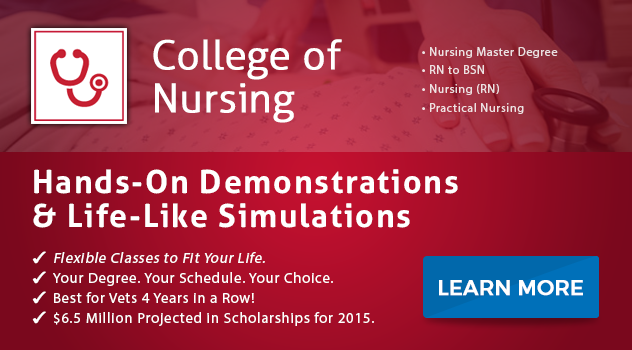
What's the Difference Between a Practical Nurse and Registered Nurse?
Nurses rule the health care continuum. Today, there are more than three million nurses practicing in the United States. These caring professionals make up the largest segment of health care workers in hospitals, clinics, specialty practices and nursing homes.
There are as many nursing specialties and educational options as there are choices of where to work. You will find nurses working in:
- Physician practices
- Hospitals
- Nursing homes
- Outpatient facilities
- Home health companies
- Prisons
- Schools
- Colleges and Universities
Americans need health care and nurses provide the bulk of patient care across the profession. Once the decision has been made to pursue nursing, the first choice is whether you will choose practical nursing or registered nursing. Let’s explore these two segments.
Practical Nursing
First, let’s discuss practical nursing or the Licensed Practical Nurse (LPN). Perhaps the primary advantage of seeking an LPN is that is takes considerably less time to pursue and obtain. You can typically achieve your LPN in about a year, versus the two or so years it takes to earn a Registered Nursing (RN) degree.
LPNs provide basic clinical care across the American health care system; from outpatient facilities to hospitals, nursing homes to private physician practices. LPNs work under the supervision of physicians and RNs, providing basic nursing care to the sick and infirm.
The LPN degree can be a stepping stone to an advanced degree; however, that is not necessary to begin working in the nursing field, making this an ideal role for those interested in breaking into health care quickly.
Registered Nurses
Studying to become a Registered Nurse (RN) requires more of an academic commitment than the LPN, as previously discussed. However this increased commitment yields a professional nursing degree, which could allow for more flexibility in work environments.
You will find RNs in hospitals, nursing homes, critical care units, outpatient clinics, and even, in businesses, schools, and almost anywhere health care is provided. RNs truly are the backbone of America’s health care system – they make up the majority of the care-providing workforce today.
Having an RN enables you to seek advanced degrees, including the BSN and MSN, which allow nurses to enter hospital administration, public policy, nursing education, and so much more. Choosing the RN degree over the LPN has some clear advantages!
Cute enough to stop your heart, skilled enough to restart it sandyyyy_cx #nursingstudents #ecpi… https://t.co/1cwAUHlSwU
— Amelia Elizabeth (@nrseamelia) July 21, 2015
Making the Choice: LPN or RN
Nursing is the profession of caring. If you’re considering a Diploma in Practical Nursing or an Associate of Applied Science in Nursing degree, ECPI University has a team standing by to help you make the most informed decision about either degree path. Contact us today to discuss your options and find out how ECPI University could help you achieve your goals. It could be the Best Decision You Ever Make!
DISCLAIMER – ECPI University makes no claim, warranty or guarantee as to actual employability or earning potential to current, past or future students or graduates of any educational program we offer. The ECPI University website is published for informational purposes only. Every effort is made to ensure the accuracy of information contained on the ECPI.edu domain; however, no warranty of accuracy is made. No contractual rights, either expressed or implied, are created by its content.
For more information about ECPI University or any of our programs click here: http://www.ecpi.edu/ or http://ow.ly/Ca1ya.



